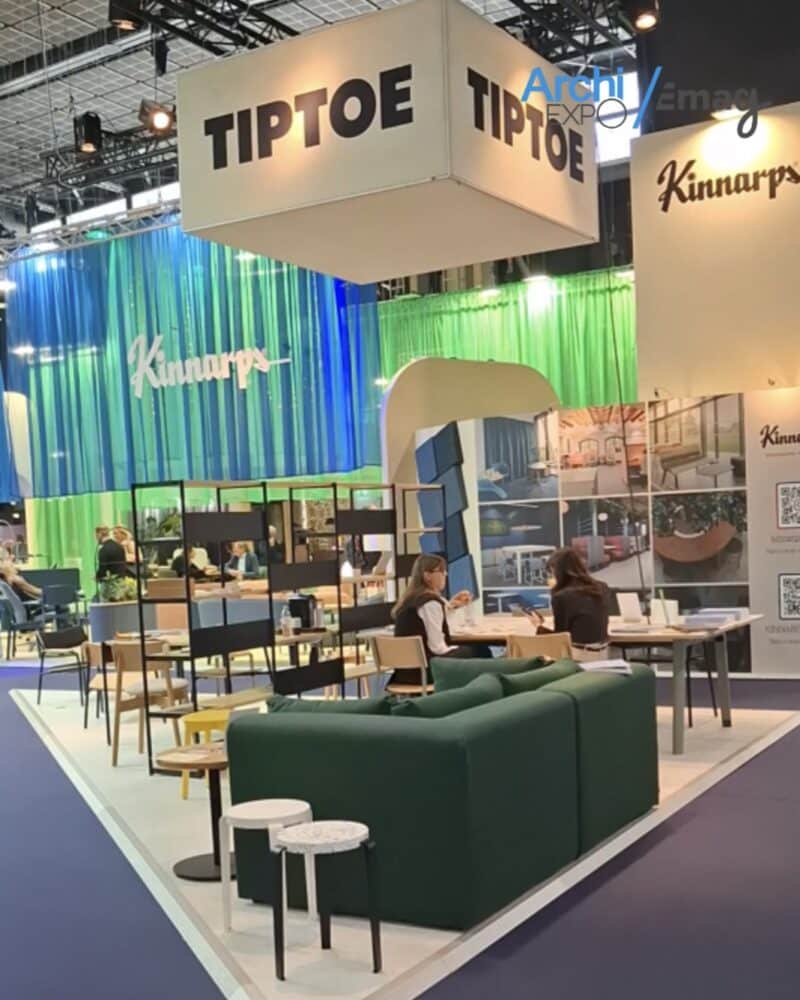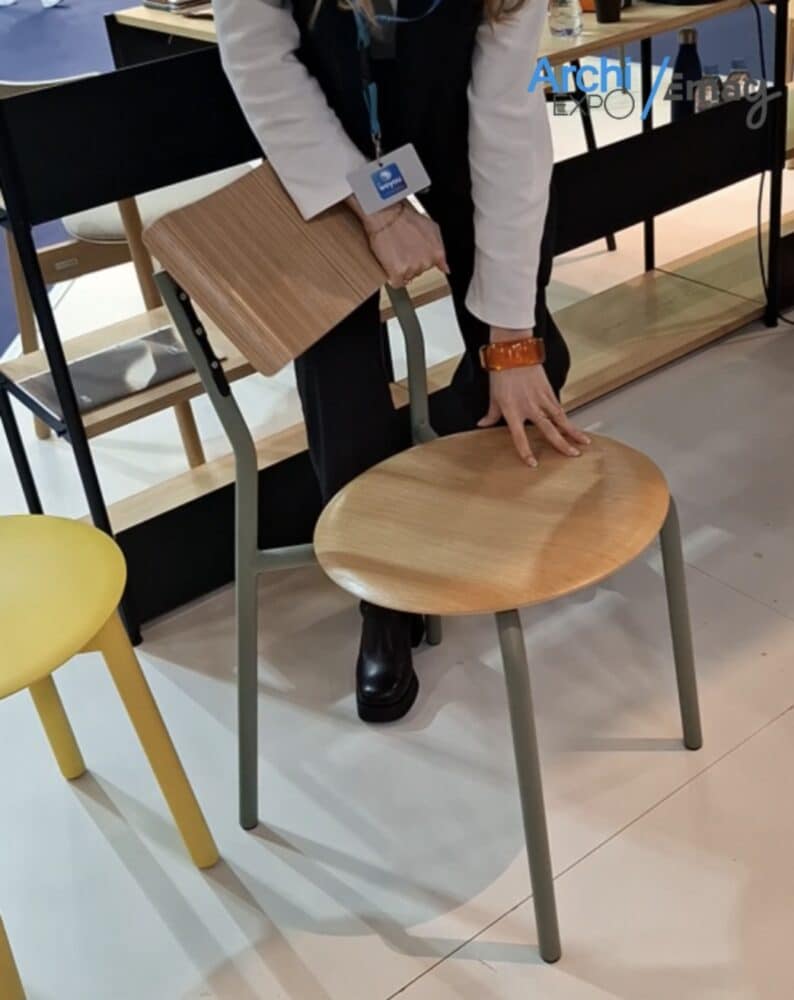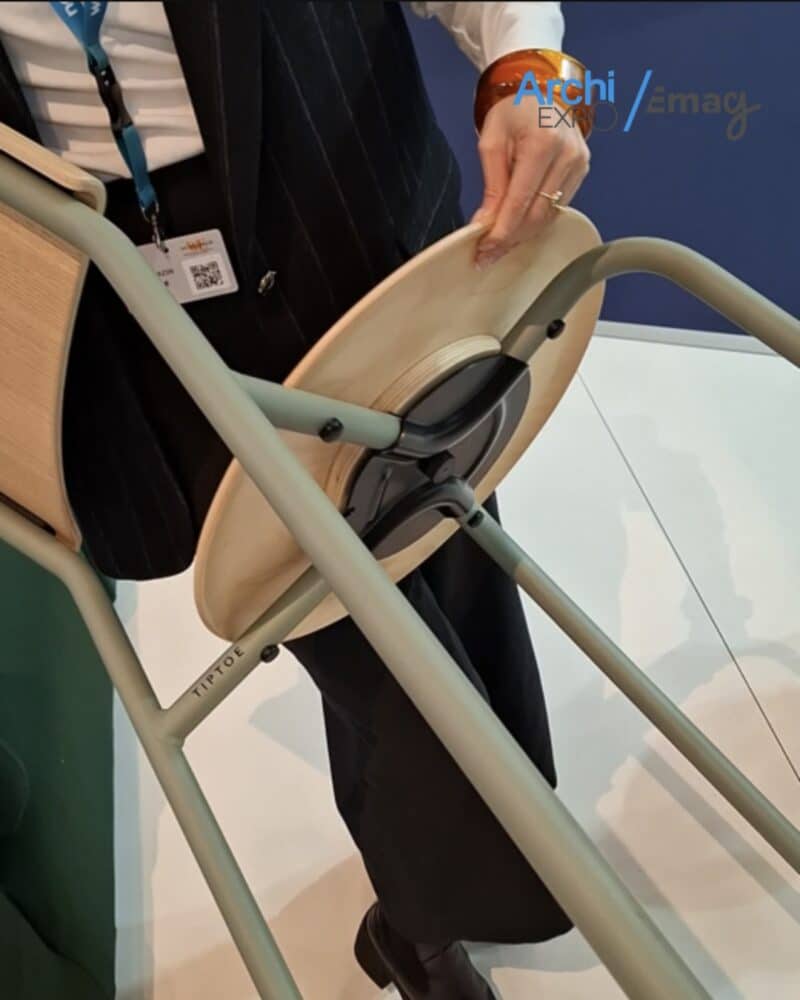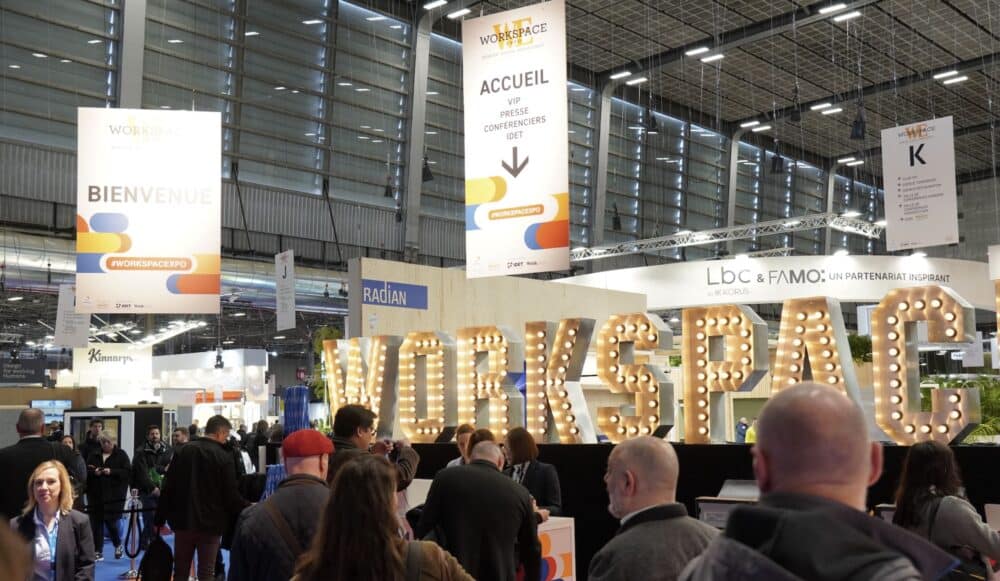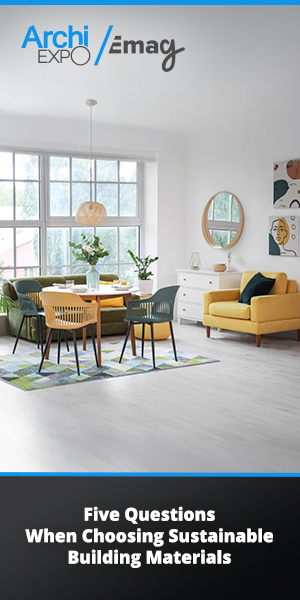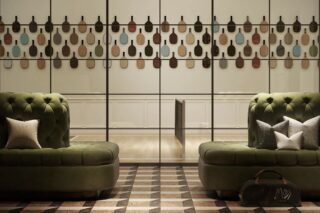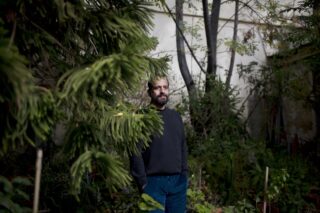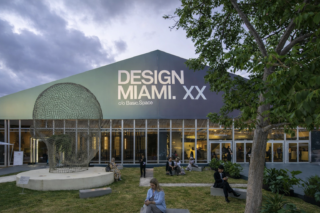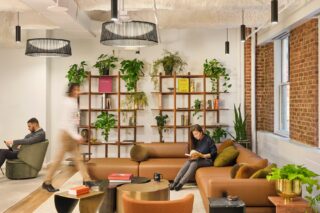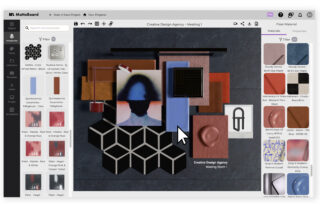We toured the French Eco Wave at Workspace Expo in Paris to find a few amazing upcycling projects from young, local companies.
24 – 26 March—Workspace Expo held its annual exhibition for furniture, design, and workspace layout under the tagline “I love my workspace”. In addition to hosting conference topics and a trendy space designed by Karl Petit, the organizers launched the French Eco Wave. They selected local, young companies launched less than ten years ago for this eco circuit. The companies had to match three models: made in France, upcycling, and the use of eco-construction materials.
We perused the circuit and made a limited selection of our own to feature. Work with Island’s Acoustic Cabins have insulation made from recycled jeans. Tizu upcycles cloth for their table tops with a cloth tag label visible on the side. Makiba is transforming office wellness with its sit-stand desks, combating the sedentary lifestyle that hinders productivity and well-being. Dizy has turned barley grain husks from beer manufacturing into elegant tabletops. And lastly, TipToe and its ingenious flat-pack furniture concept.
Transforming Jeans into Insulation for Workplace Cabins
Work with Island has been upcycling materials to make soundproof office phone booths and meeting rooms since its founding in 2018. The products require no installation work, can be set up in an hour thanks to a plug & play operation, and are self-sufficient thanks to a single power socket. Yet, what ticks the box more than fast installation is the materials used for making them.
Yes, major companies such as L’Oréal, LVMH, Dior, and many others, have already begun integrating these cabins into their workspaces. Why? In addition to sourcing materials from French suppliers, the company uses Le Métisse. Le Relais transformed recycled jeans, one of the most polluting garments on the planet, into acoustic insulation.
Forty pairs of jeans go into making the SOLO cabins. If you live in France, you might step into a cabin whose insulation is made from your old jeans. Cool?
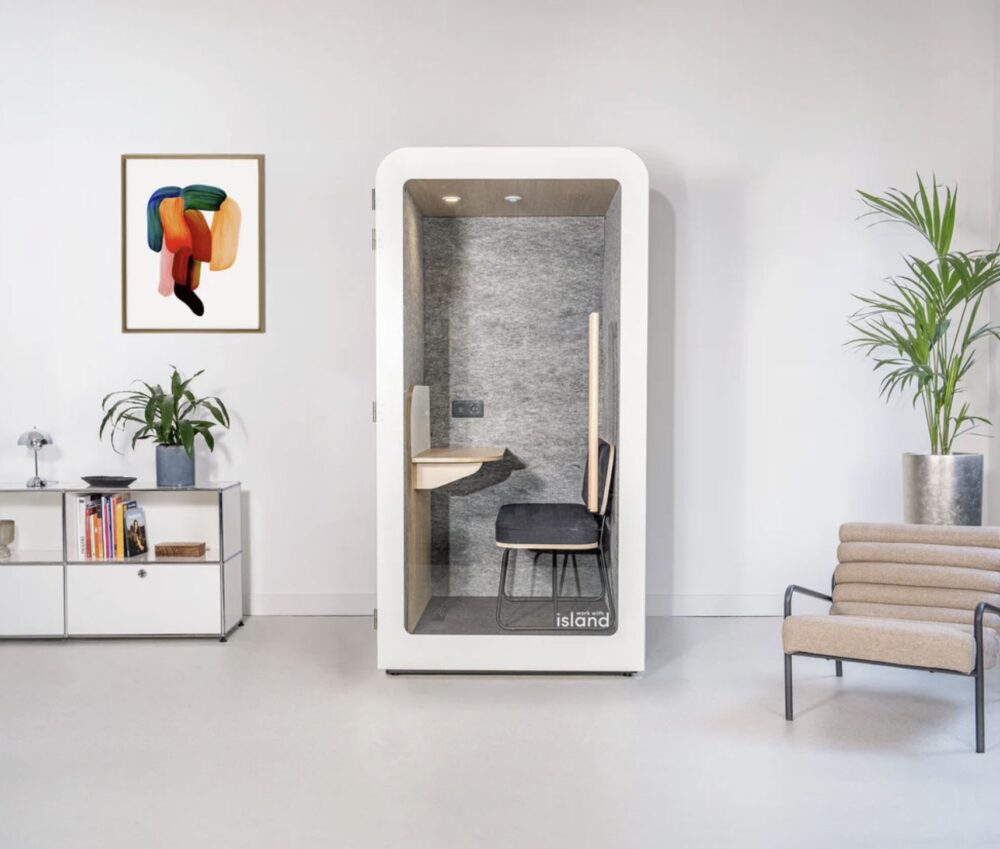
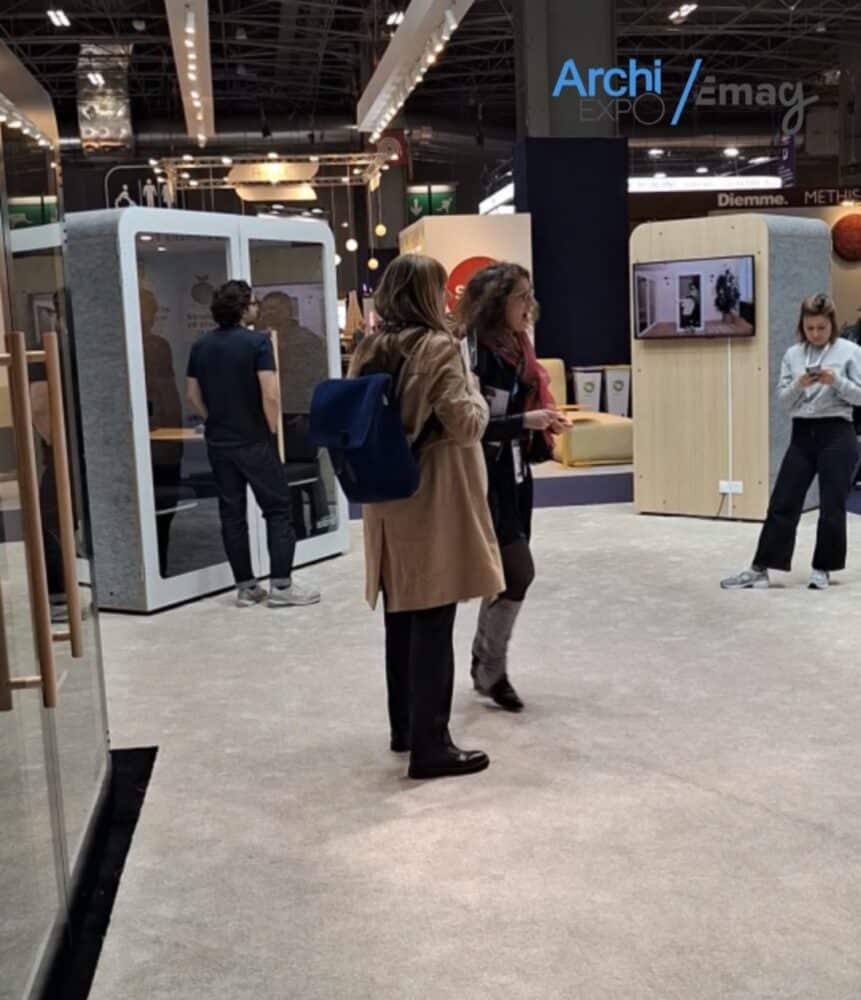
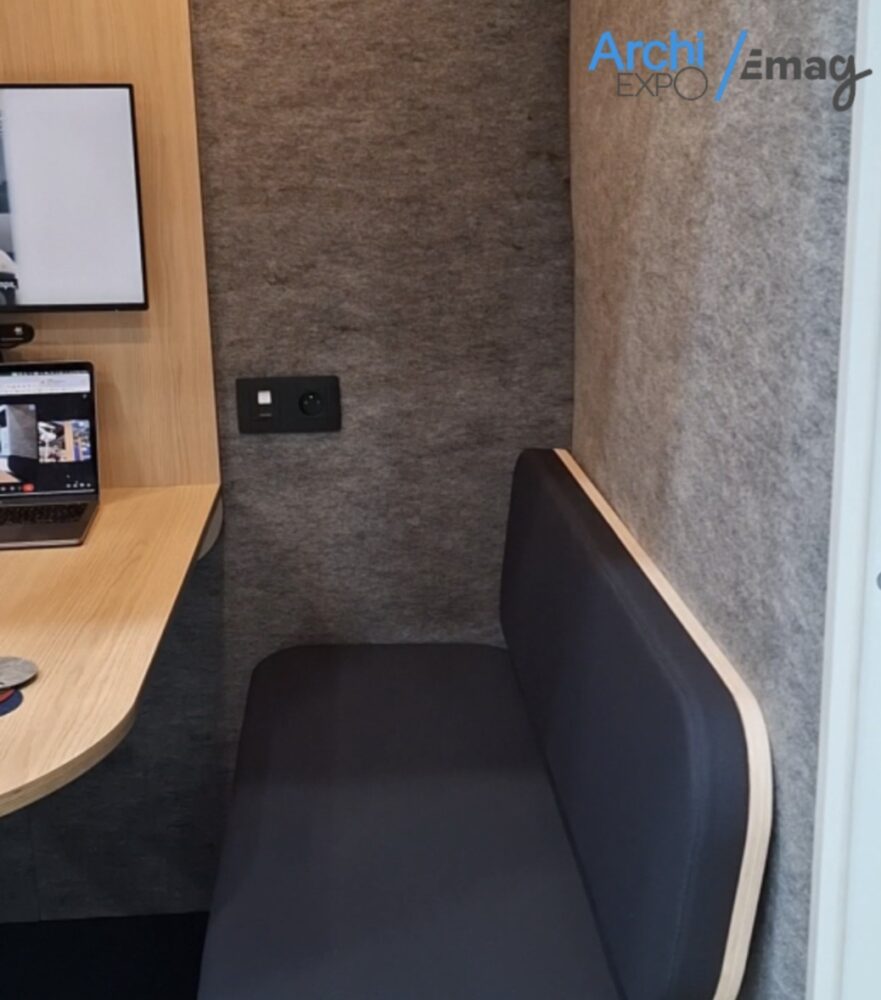
WATCH our quick video tour of Workspace Expo 2025 here.
Eye-tricking Tabletops Made from Upcycled Cloth
Founded in 2019, Lyon-based company Tizu uses 100% upcycled materials to fabricate its furniture pieces and boasts of the first furniture manufacturing factory based on a circular economy in France. Having developed several material recovery channels to industrialize their re-use, Tizu offers a second life to household linen, dressing room partitions, ping pong tables, stadium stands, and more.
When we saw the tables topped with leftover cloth revealing the same motif as the tabletop on which they sat, we couldn’t believe the textile was truly used for the surface. Tizu, though, has created a unique layering process from fabric waste that allows them to customize furniture with dozens of different patterns and colors. The team added a touch of brilliance by integrating a cloth tag as a brand label on the side of the tabletop, a souvenir of the process and the new life.
WATCH a “behind the factory” video here.
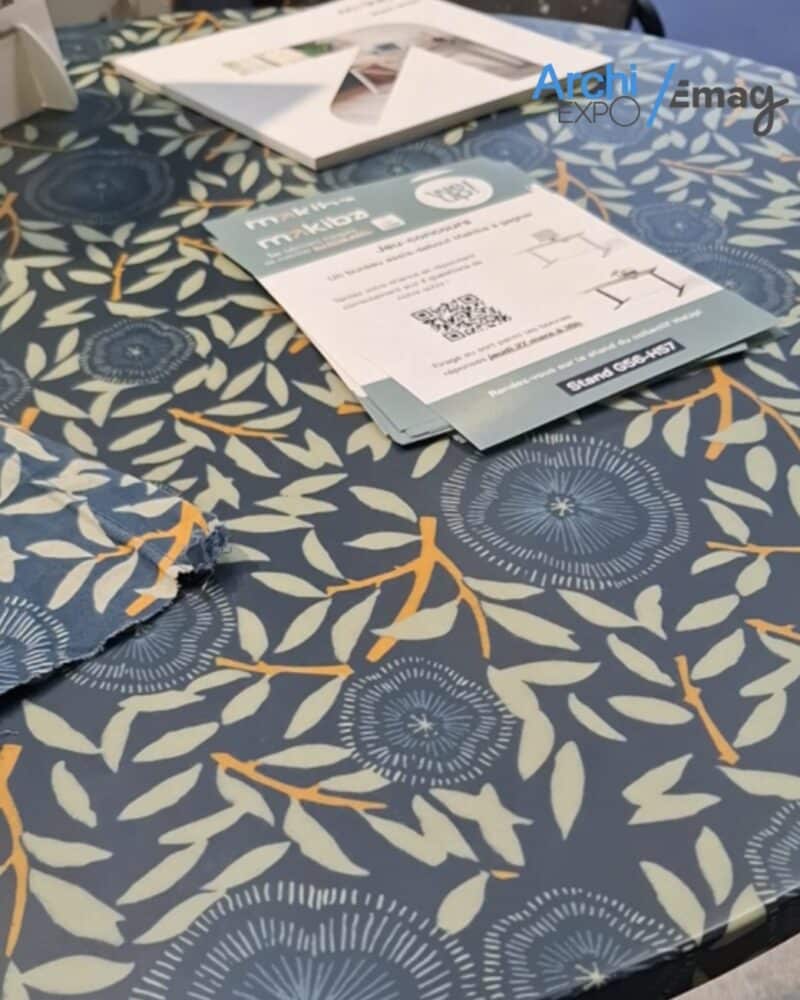
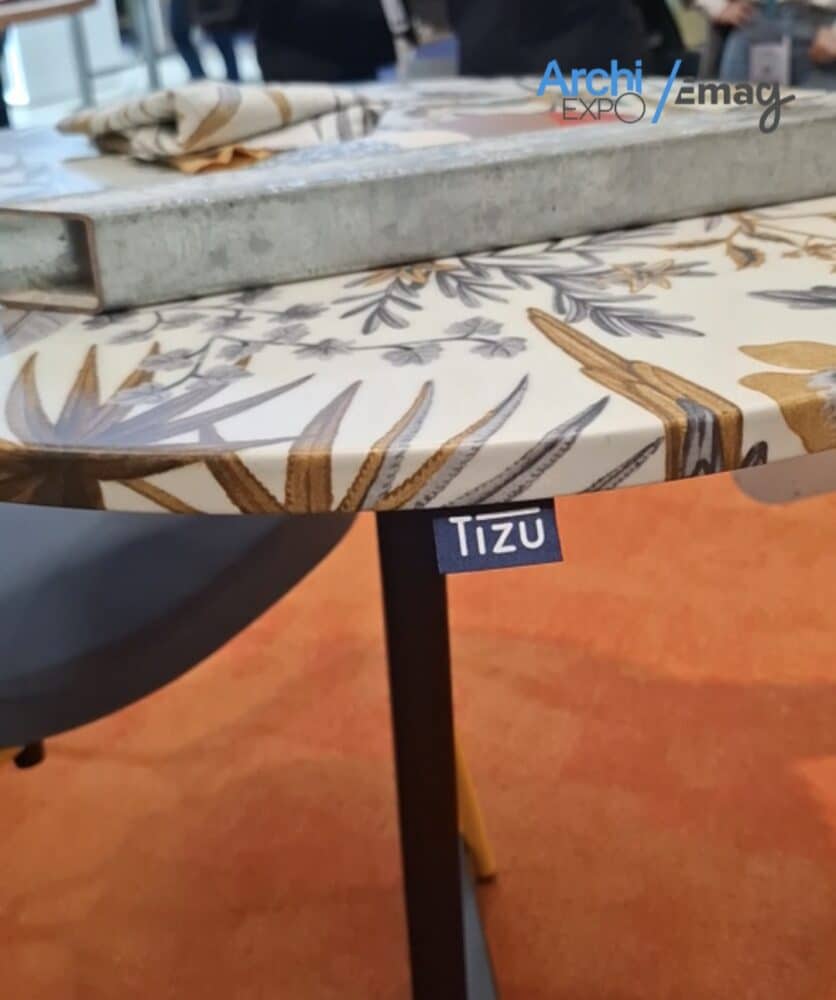
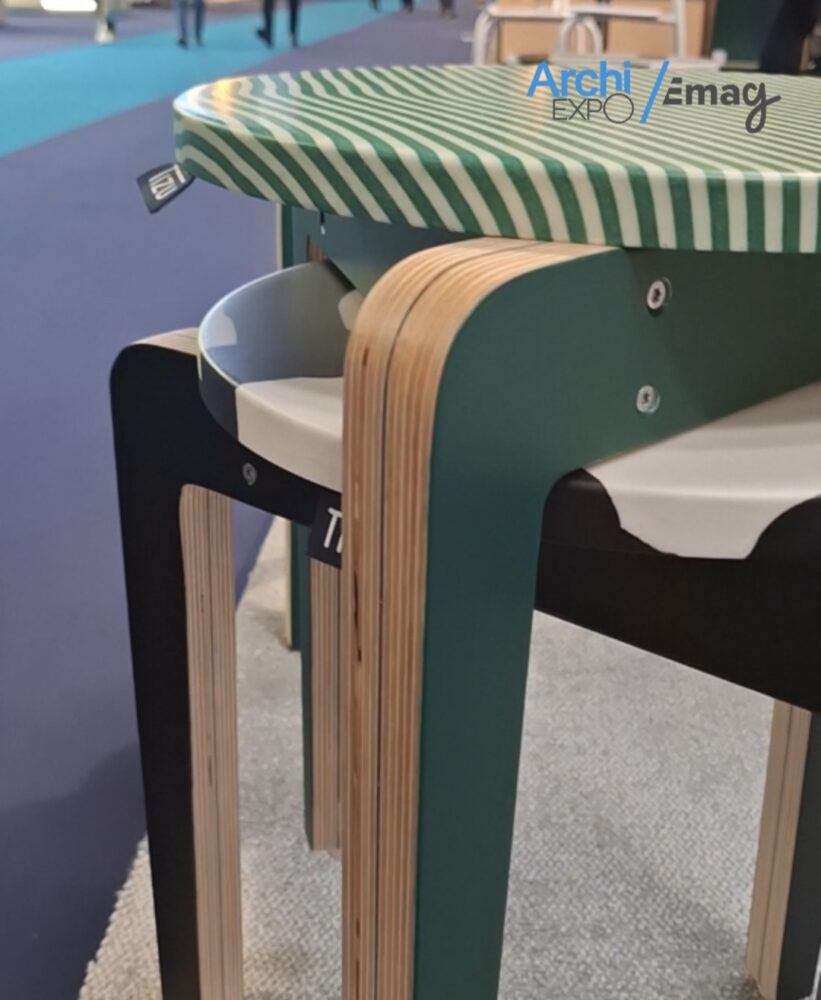
As the newest product on display, the Table Célestins has 300 configurational possibilities. The table, made from old ping pong tables from Decathlon, provides a solid multimedia table for office meetings. The legs are made from steel, recovered from Circuit Paul Ricard grandstands. As a fun side note, the Grand Prix de France will take place on April 25-27 of this year at the Circuit Paul Ricard.
This French motorsport race track was built in 1969 at Le Castellet, Var, near Marseille, with finance from pastis magnate Paul Ricard who wanted to experience the challenge of building a racetrack. The Circuit Paul Ricard has an efficient waste management policy enabling 19 different types of waste to be sorted and recycled at the racetrack.
Table Célestins is but one example of a product that end-users can appreciate for the circular journey materials have taken and the history behind its new life.
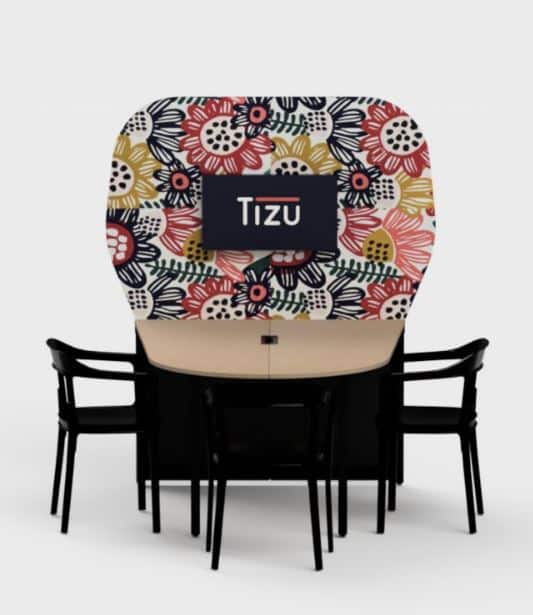
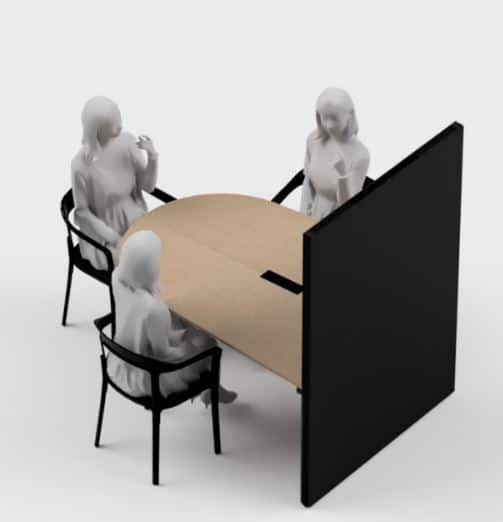
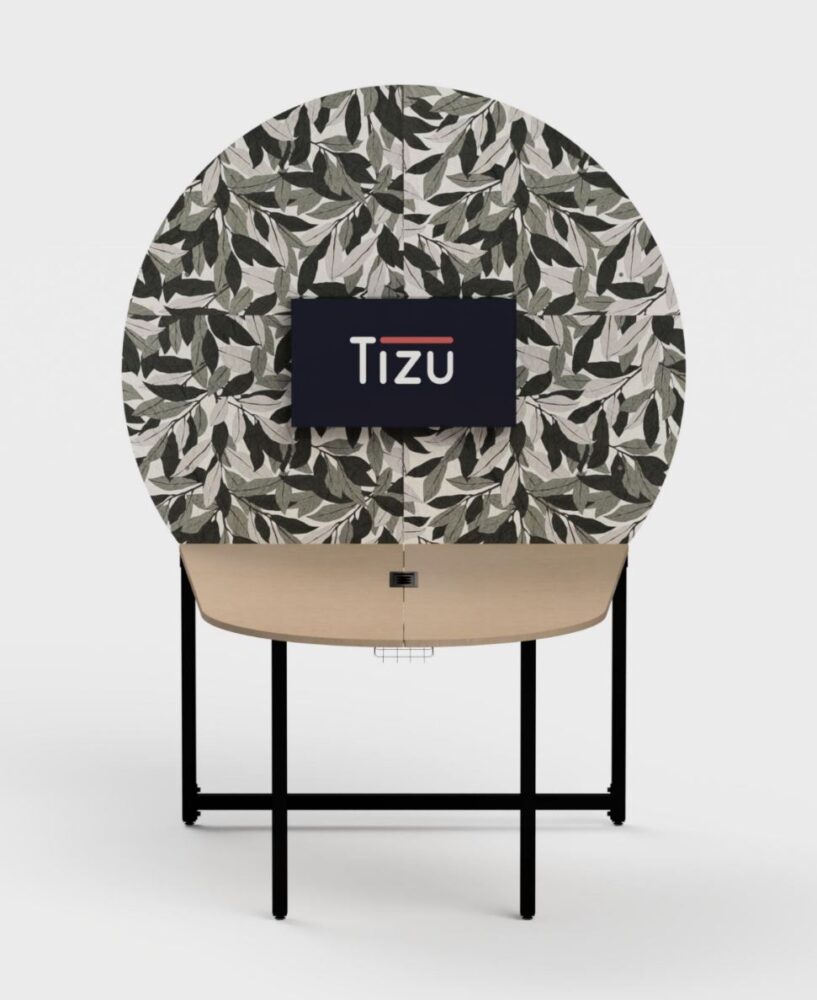
Sit and Stand Desks by Makiba, 1st in France with an EU Eco-label
As the first French furniture manufacturer to receive a European eco-label, Makiba is pushing the boundaries of health and sustainability in the workplace. Makiba, a committed French manufacturer of active height-adjustable furniture, has obtained the EU eco-label for three of its emblematic products: the UGO, VICTOR 2, and BENCH VICTOR 2 desks. It’s a great achievement for the brand, co-founded in 2017 by Franck Taverriti and Nicolas Fabries.
UGO, our fully integrated system, marks a major evolution in electrical furniture. VICTOR 2 is packaged in a single, compact box that’s easy to move and quickly assembled, having a central beam that gathers all cables to save time.
In addition to these, Makiba provides a CYKLIC circular economy offer with a variety of products such as the sit-stand station HARRY. It’s a 100% upcycled product that takes a few seconds to assemble, without tools.
The latest member of the catalog, VICTOR 2 3 PIEDS is delivered in three compact boxes and is easy to relocate.
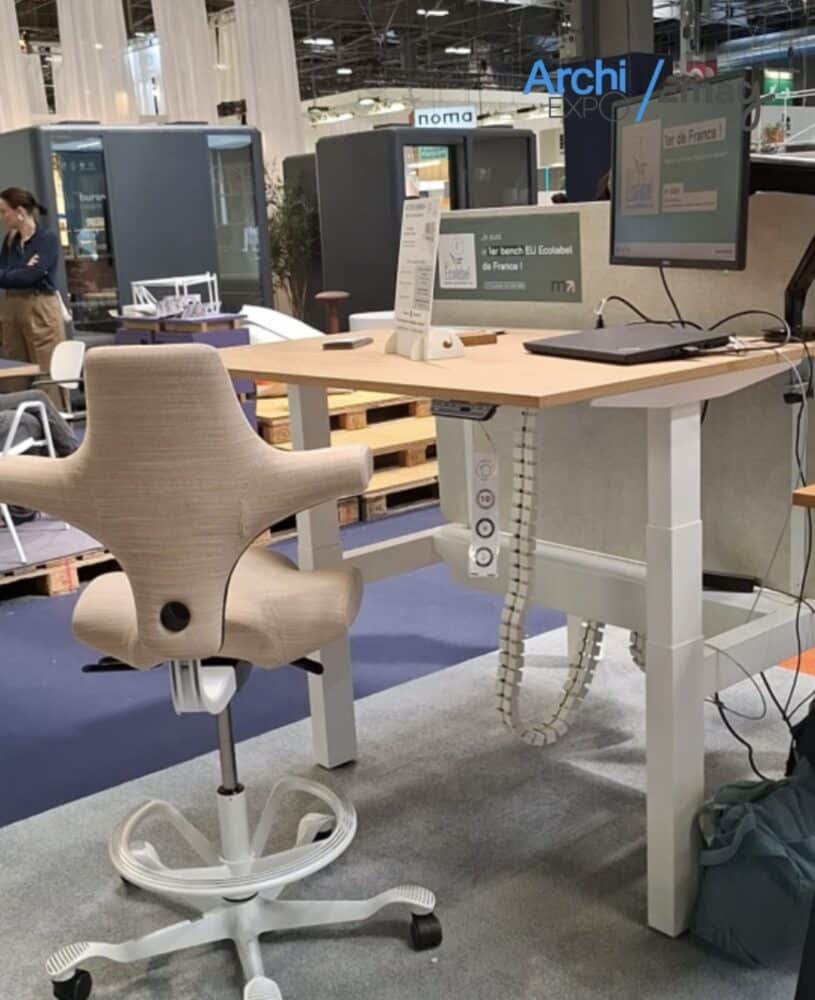
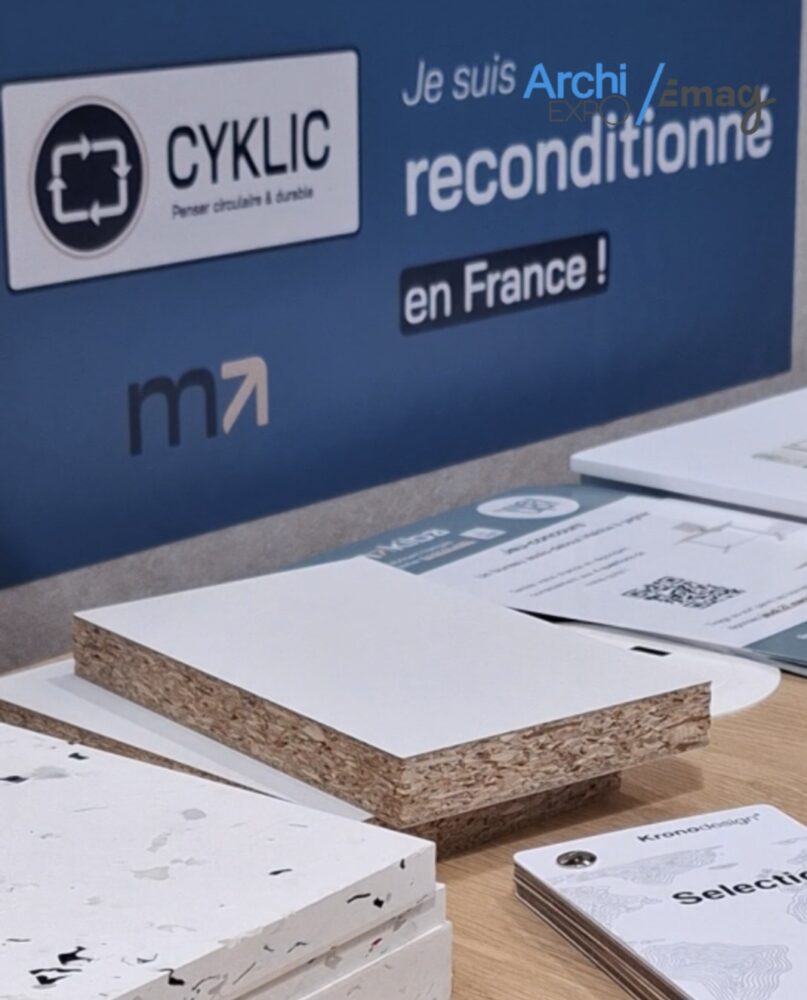
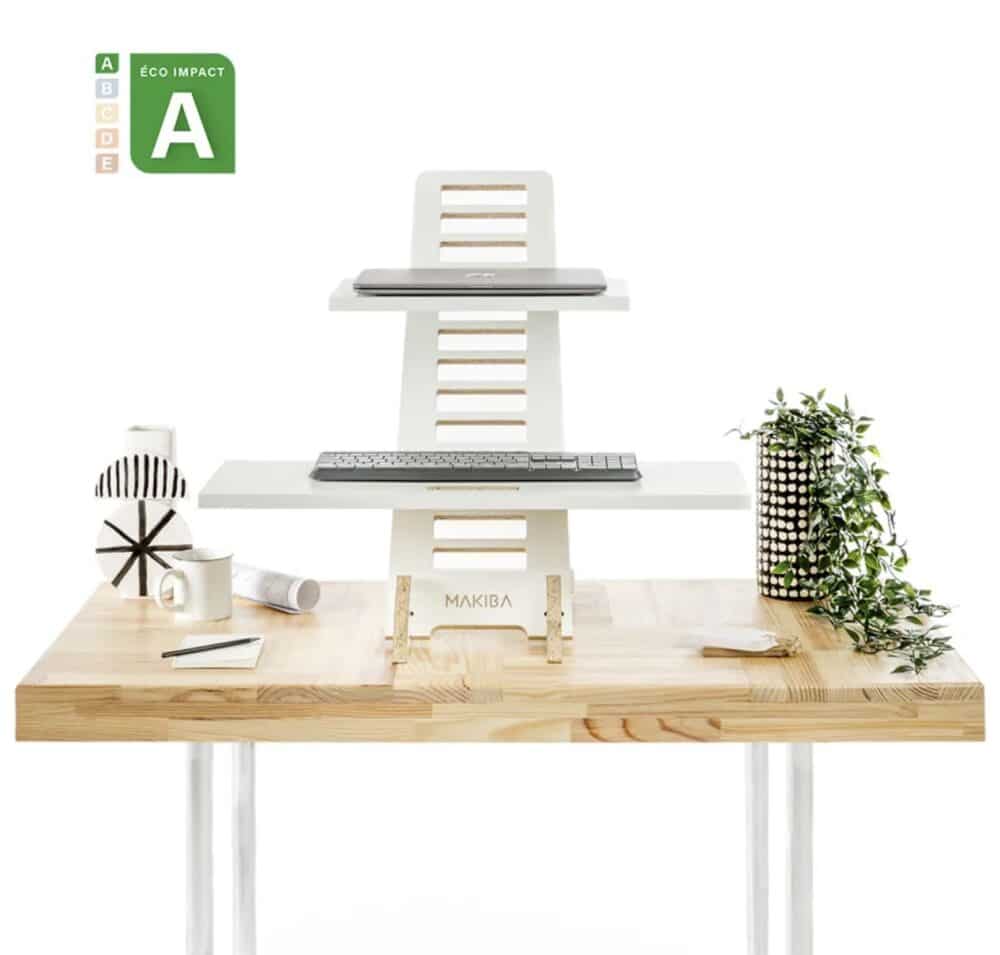
Turning Barley Grain Husks into Elegant Tabletops with Dizy
Founded in 2019, Dizy aims to bring a more responsible offering to the furniture market in France. The team never disappoints with a wide range of products made from upcycled materials: ping pong tables, badminton birdies, recycled plastic, and more. At the event, Dizy exhibited two specific tables—one made from ping pong tables, another whose top was made from beer manufacturing waste.
Agricultural production results in wastes that can be re-used to improve the quality of the environment, as reported by the NLM in 2018. In this case, the company used barley grain husks from beer manufacturing and turned them into elegant tabletops. We look forward to seeing what else they have to offer in the future.
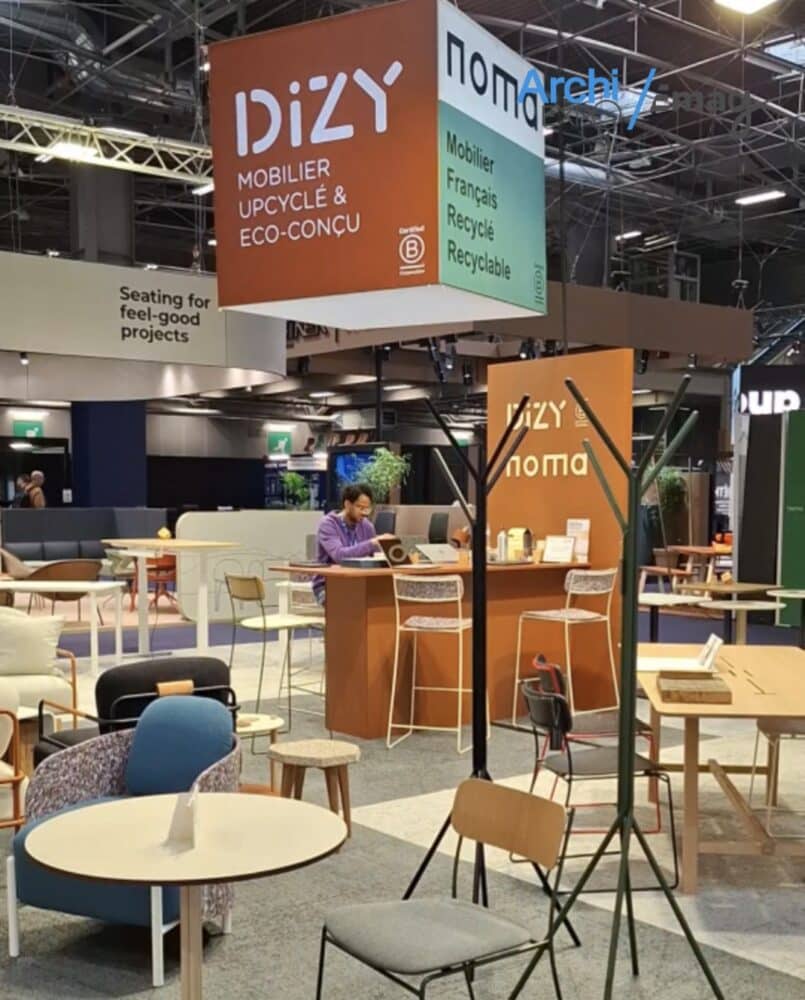
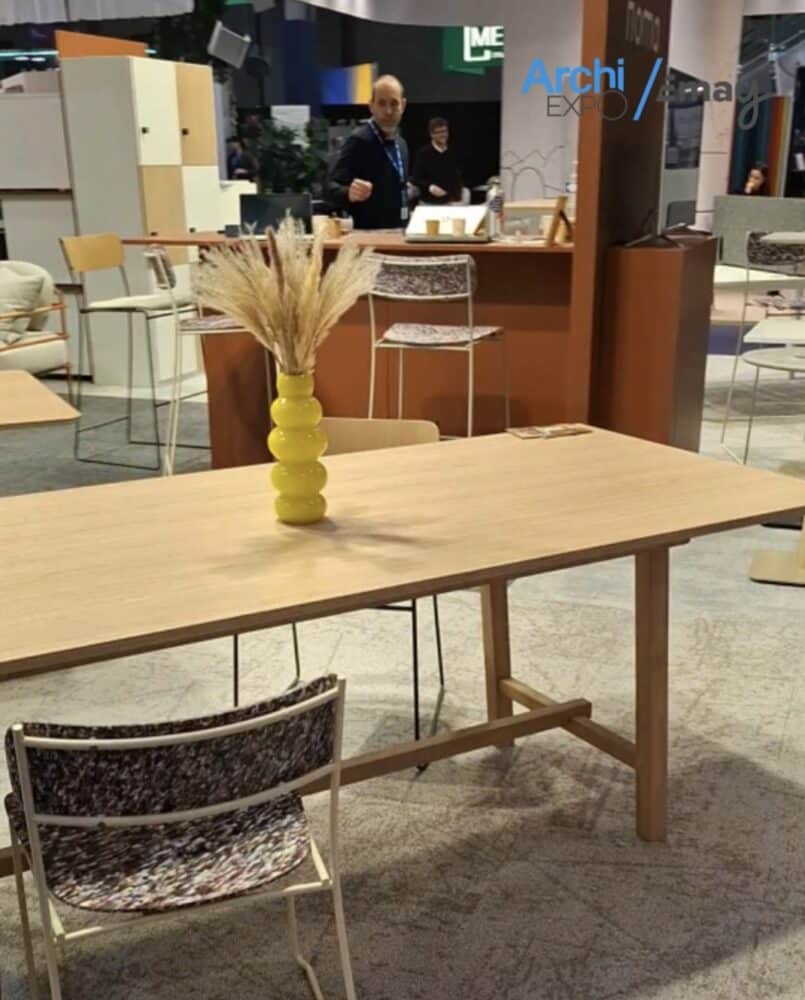
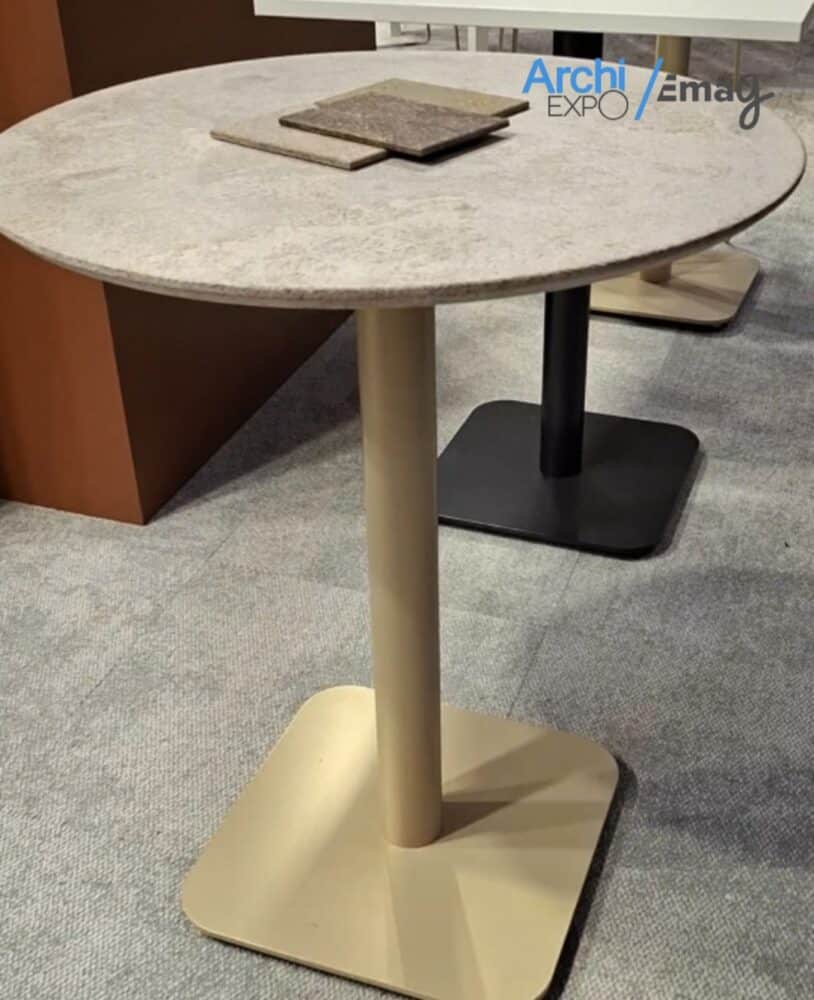
Other products include modular, customizable lockers designed and manufactured from recyclable, recycled, and upcycled materials; a workspace desk for a carbon-free environment thanks to Dizy’s manufacturing process which uses 60% less greenhouse gases than the equivalent median product; and a bistro table that can be made from recycled badminton shuttlecock, also known as birdies or birds, for an option that offers a unique texture and a singular aesthetic.
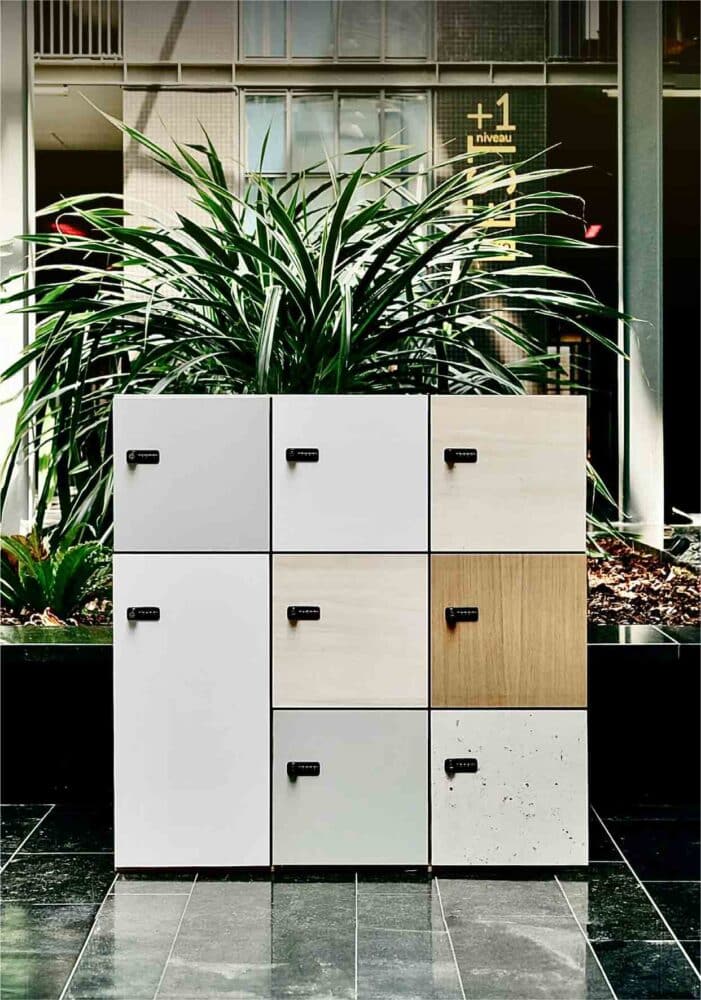
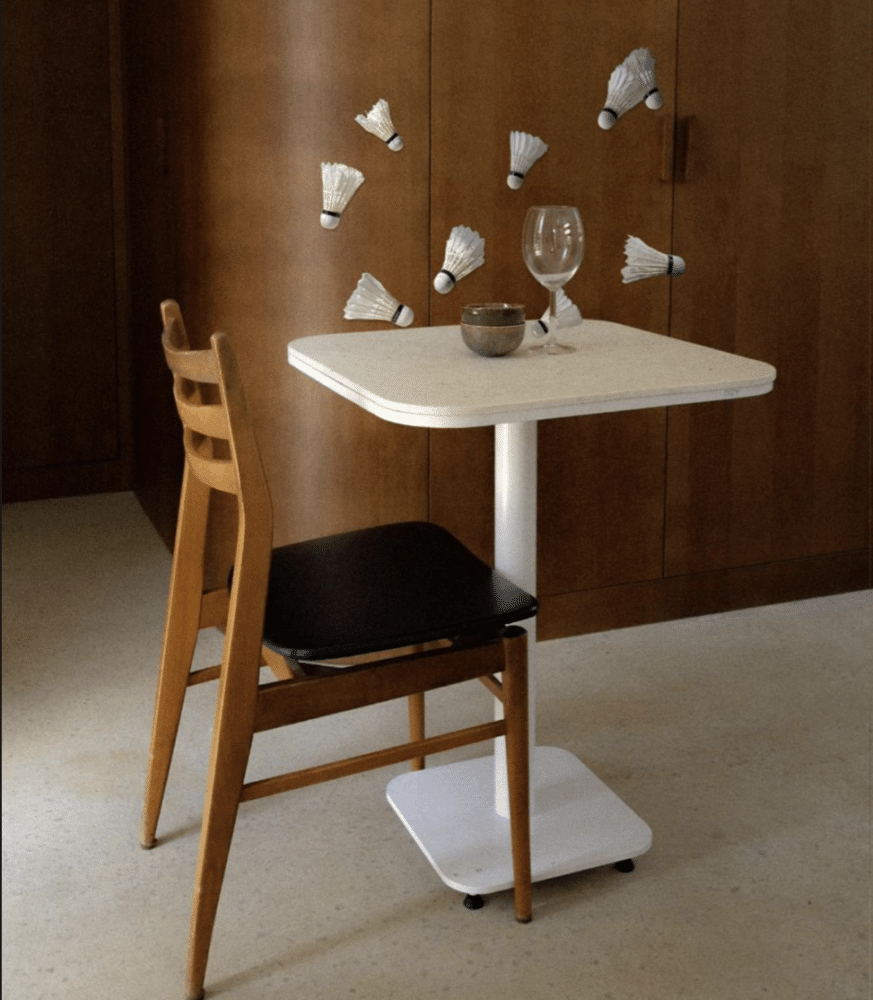
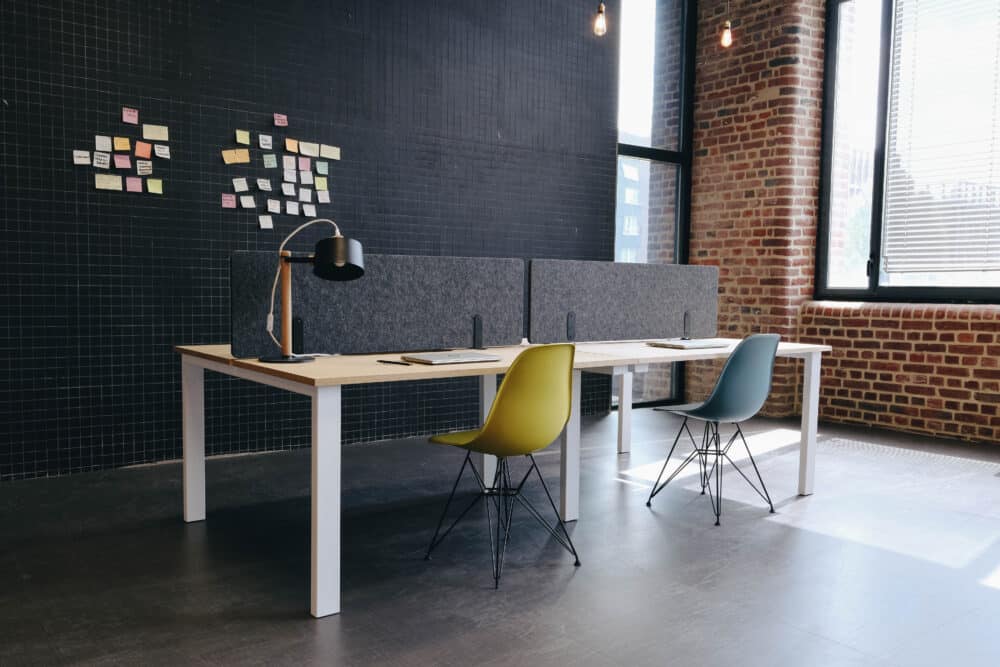
Ingenious Flat-pack Furniture Concept by Tiptoe
Tiptoe and its ingenious flat-pack furniture concept. Since 2015, Tiptoe has been designing its tables and chairs to be delivered in flat packs, minimizing transport emissions, and making them eco-friendly from the moment they leave the workshop.
Rooted in the family history of co-founder Matthieu Bourgeaux, the studio draws on the excellent know-how of partners working in wood, metal, and recycled plastic. Specializing in metal machining, the family workshop in Haute-Savoie has been one of the brand’s main partners for almost 10 years.
The company obtained b Corp certification in 2021 due to its vigilance in environmental concerns at each stage of its products’ lifecycles, including delivery and assembly. Tiptoe is most known for its signature brackets used in its flat-pack furniture concept.
